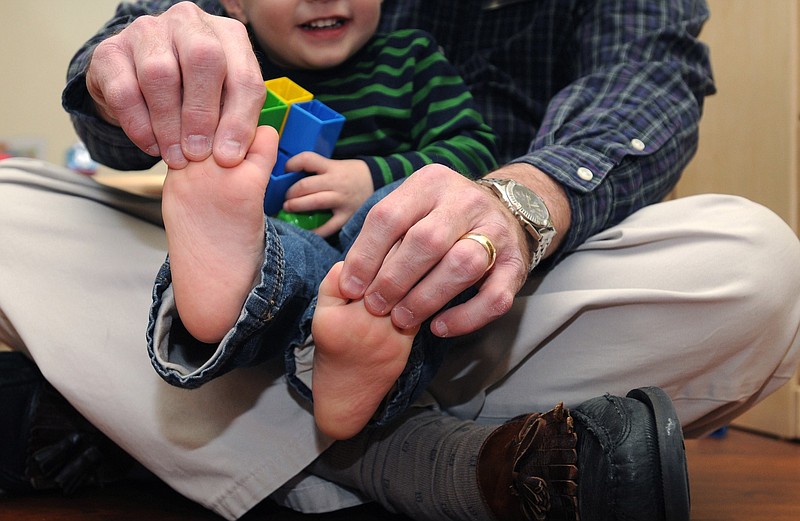This story is a part of The Article, your guide to Arkansas news and culture, presented by the Democrat-Gazette. Sign up for The Article's twice-weekly newsletter here or to see stories that have appeared in past newsletters, go here.
The pandemic has taken a toll on the state’s child welfare system, erasing most of the gains the state had made in recent years helping get children out of foster care.
What gains were erased?
As many as 5,200 children were in foster care before 2016.
The number of children in foster care in Arkansas was down to 4,303 in July 2019, but by the end of June 2021, there were 4,851 in care. That is a 12.7% increase in two years, and the figure is much closer to the high number of children in care in 2016.
The pandemic also has delayed the time it takes the agency to close an investigation.
The state Division of Children and Family Services does 29,000 investigations of child abuse or neglect a year. The number of investigations that weren't concluded within the division's guideline of 45 days had averaged fewer than 100 for the past several years.
As of the end of June, more than 600 investigations in progress had already taken more than 45 days.
What has caused these problems?
More than 20% of caseworkers have contracted covid-19 since the start of the pandemic.
Many more have been quarantined, and the average caseworker for the division has gone into quarantine more than once since the start of the pandemic, DCFS administrator Mischa Martin said. Only so much of their work can be done remotely, leading to delays.
In the Pulaski County section of the division, there was also higher-than-usual turnover among caseworkers, a position that suffers from turnover during typical years. This led to more cases per caseworker, which can in turn increase turnover.
Precautions to prevent the spread of the virus also delayed court hearings, extending children’s stays in foster care. Providers of key services such as counseling and parenting lessons also had to curtail their support.
What solutions are there to help the agency and the children it serves?
Jennifer Ferguson, deputy director of the nonprofit Arkansas Advocates for Children and Families, said the state should use funding from the most recent federal pandemic aid package to help the Division of Children and Family Services.
She suggests hiring bonuses for new employees and higher pay for existing staff to encourage retention.
Ferguson also said she hopes agency leaders are encouraging staff members to get vaccinated, which Department of Human Services spokeswoman Amy Webb confirmed the agency is already doing.
The department is offering bonus pay for getting vaccinated, holding clinics in Human Services Department facilities, working with pharmacies to offer vaccinations at offices around the state and forming a covid response team to answer questions one-on-one about vaccinations.
Read more here from Northwest Arkansas Democrat-Gazette politics editor Doug Thompson.
